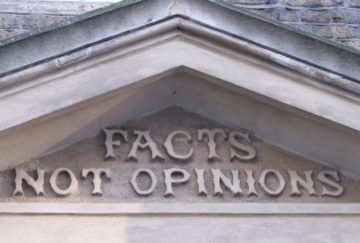 Gregory Kaebnick in Boston Review:
Gregory Kaebnick in Boston Review:
The COVID-19 pandemic seems to take every public problem—vast social inequality, political polarization, the spread of conspiracy theories—and magnify it. Among these problems is the public’s growing distrust of scientists and other experts. As Archon Fung, a scholar of democratic governance at Harvard’s Kennedy School, has put it, the U.S. public is in a “wide-aperture, low-deference” mood: deeply disinclined to recognize the authority of traditional leaders, scientists among them, on a wide range of topics—including masks and social distancing.
As the world continues to struggle through waves of disease, many seek a world more inclined to listen to scientific experts. But getting there does not require returning to the high-deference attitude the public may have once held toward experts. Turning back the clock may well be both impossible and undesirable. In a way, a low-deference stance toward experts and authorities is just what a well-functioning democracy aims at.
There is a deep puzzle here for science and policy-making. Complete rejection of expertise not only makes little epistemic sense (for there is no doubt that expertise exists); the complexities of the modern state make trust in others’ expertise indispensable. On the other hand, unqualified deference to those in positions of power and privilege vitiates the basic principles of democracy.
How do we reconcile these facts?
More here.
